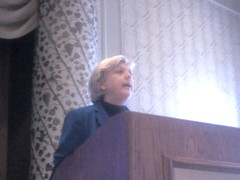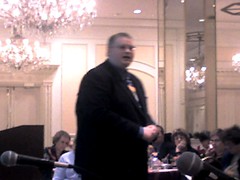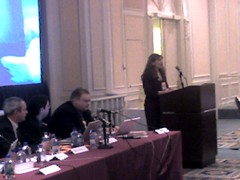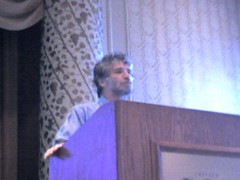 OK, this is kinda cool.
OK, this is kinda cool.
Enter a zip code anywhere in the United States:
Following the Dollars: Map Political Campaign Contributions in Your Area
It’s a mash-up that scraps data from The Fundrace Project, which features data on funding of political campaigns. With Follow the Dollars, you enter your/a zip code and then gives you a number of graphs indicating the amount of money being donated to the Republican party from that area, and donated to the Democrats. You can also view a map, with pens for places from which money has been donated.
I’m happy to see that my neighborhood is leaning in the “correct” direction.
A mashup is a web site that takes data from one or more other web sites, and then does something with the data to add value. My Hitchhikr site is a mashup, of sorts. It takes information from Technorati searches and from flickr, and creates pages listing blog postings and fickr images from registered conferences.
My favorite mashup is BuzzTracker. It scraps data from Google News, and then creates a map of the world indicating where news it happening at that moment. Very cool!
technorati tags:warlick, mash-up
Blogged with Flock



 I had such plans for a good night’s sleep, after getting so few hours the night before. But this School Library Journal Summit just has me going. I woke up at 3:00 (4:00 AM my time, to be fair), with brainstorms going off in my head. The thunderbolts got so loud that they woke my wife, and I had to retreat to the Drake Room, the site of our summit work, where I could continue to think and also to feed off of the free WiFi here.
I had such plans for a good night’s sleep, after getting so few hours the night before. But this School Library Journal Summit just has me going. I woke up at 3:00 (4:00 AM my time, to be fair), with brainstorms going off in my head. The thunderbolts got so loud that they woke my wife, and I had to retreat to the Drake Room, the site of our summit work, where I could continue to think and also to feed off of the free WiFi here.


 Last week, I asked people to answer this
Last week, I asked people to answer this